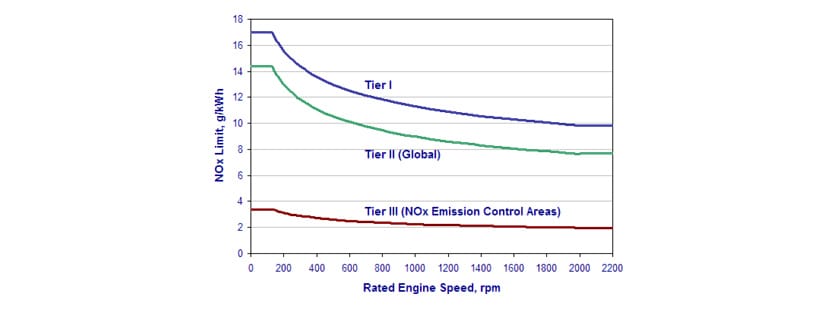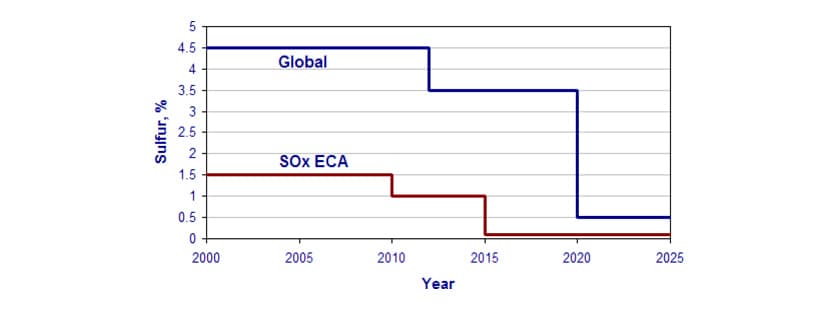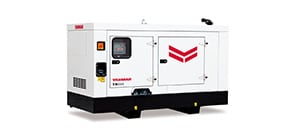IMO
Combining Environmental Performance with Improved Customer Satisfaction
At Yanmar each of our marine engines are built with our innovative technology that comes from decades of experience, refinement and successes.We recognize that generator drive engines work hard throughout the entire life of your ship; and therefore we have integrated our development, production, sales and service to optimize the life cycle value.At Yanmar, we are incorporating your feedback to accelerate our research and development. At the same time, we keep in contact with you long after delivery to continually provide optimal solutions. On the environmental front, we are working to refine technologies that mitigate noise, vibration and emissions.Furthermore, in an effort to create better harmony with nature, at Yanmar we are pursuing means to reduce air pollutants emissions and the use of substances which are harmful to the environment.
International Maritime Organization ― A Global Pact to Mitigate Environmental Impact―
IMO NOX Regulations

A big issue confronting our world today is the emission of air pollutants from marine engines.In September 1997, the “International Convention on the Prevention of Pollution from Ships”, known as MARPOL 73/78 was amended by the “1997 Protocol”, which includes Annex VI titled “Regulations for the Prevention of Air Pollution from Ships”. NOX emission limitations were made for all marine diesel engines with a power output of over 130kW manufactured after January 1, 2000.In October 2008 the annex was amended, mandating that any marine diesel engine manufactured after January 1, 2011, comply with the Tier 2 regulations.At Yanmar we are doing more than just modifying engines and applying additional after-treatment technologies in response to regulations; we are leveraging new engine combustion technologies for total efficiency and reduced emissions.
IMO SOX Regulations

SOX emission limitations, like NOX, are also becoming increasingly stringent.From 2015, it became mandatory to use fuels with a sulfur content of less than 0.1% in Emission Control Areas.Regulations stipulating that fuels with sulfur content of less than 0.1% must be used when mooring in a harbor or using the inland waterways had already come into effect within the EU as of January 1, 2010.In response to these changes, at Yanmar we are transforming our marine auxiliary engine fuel systems to enable the use of fuels that have lower sulfur content (reduced viscosity and lubricity).

 Energy Systems
Energy Systems
 Compact Equipment
Compact Equipment
 Compact Power Products
Compact Power Products
 Marine Commercial
Marine Commercial
 Recreational Marine
Recreational Marine